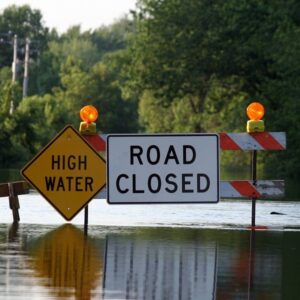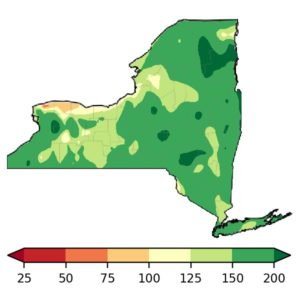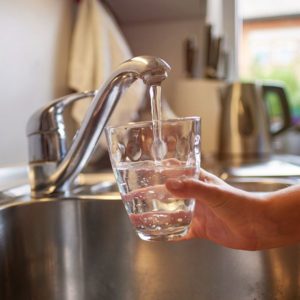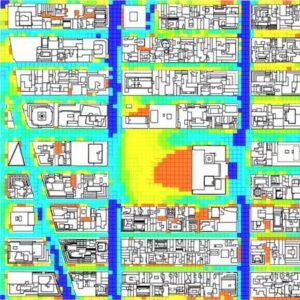Support for Time-Sensitive Research
Rapid Response Fund
The Rapid Response Fund (RRF) facilitates urgent or time-sensitive research, workshops, and other activities within a broad range of sustainability initiatives. The RRF positions faculty to seize unique opportunities for small research projects with funding of up to $10,000. RRF awards in any of Cornell Atkinson’s four priority areas can be used to generate preliminary results urgently needed to compete for time-sensitive external funding or to help finance sustainability-related events.
RRF proposals are evaluated on an ongoing basis by the Cornell Atkinson leadership team. Colleagues considering a proposal submission are welcome to contact Kurt Fritjofson (kf322@cornell.edu) or members of our leadership team with any questions.
Past COVID-19 RRF Support in 2020-21
In April, 2020, Cornell Atkinson issued a special request for seed funding proposals, to enable faculty to seize urgent and unique opportunities related to the COVID-19 pandemic and sustainability. This call was in collaboration with Cornell’s Master of Public Health Program, the Vice Provost of International Affairs, the SARS-CoV-2/COVID-19 Rapid Response Research initiative, and the Cornell Center for the Social Sciences. In the end, 35 COVID-related projects were funded. Although this specific initiative is no longer open, we encourage researchers performing related work to consider applying for our ongoing Rapid Response Fund.
How to Apply
Eligibility:
- All PIs and CoPIs must meet Cornell’s principal investigator (PI) eligibility criteria
The Standard RRF cycle is always open:
- RRF submission process & budget template
(requires Cornell NetID) - Contact a faculty director about your proposal
Projects in the News
Facing Floods, Non-white Homeowners Prepare, Protect Property

In flood-prone areas of New York state, non-white homeowners are more likely than white homeowners to take active, sometimes-costly measures – such as finding a way to protect a furnace, a water heater or installing a sump pump – to prepare for a possible deluge, according to a new Cornell study by Fellows John Zinda, David Kay, Lindy Williams, and Robin Blakely-Armitage (all from Cornell CALS). (Learn More)
Combining Insights From Artists and Scientists With ‘Undisciplinary’ Process

In a new publication, Cornell Atkinson fellows Rebecca Nelson (CALS), Johannes Lehmann (CALS), and several other faculty fellows propose a shared purpose, or understanding of why to participate, is paramount in generating buy-in across partners and drives engagement. A 2021 Rapid Response Fund grant supported the project. (Learn More)
Cornell Engineers Propose Greener Recycling for Medical PPE Waste

Fellow Fengqi You (ENG) is developing innovative strategies for the disposal of used medical personal protective equipment (PPE) to divert pollutants from landfills and reduce greenhouse gas emissions, with support from a Cornell Atkinson COVID-19 RRF award. (Learn More)
Different Hazards, Different Responses: Assessments of Flooding and COVID-19 Risks among Upstate New York Residents

Fellows John Zinda, David Kay, Lindy Williams, and Robin Blakely-Armitage (all from Global Development) are analyzing data from a household survey in two cities in upstate NY which reveal that levels of concern and protective measures vary across the two hazards. Whereas climate polarization does not appear to influence flood risk responses, COVID-19 responses appear strongly polarized. Contrasting stakes, immediacy, dread, and polarization surrounding flooding and COVID-19 intersect with social inequalities to produce different patterns of risk response. (Learn More)
States That Prioritized Access to Water at Height of Pandemic Saved Lives

Water shutoffs for non-payment are a constant threat for millions of Americans in any given year. That risk was a deadly one during the pandemic, with access to clean water for handwashing and sanitation a proven way to reduce the spread of COVID-19. The dozens of states that implemented moratoria on water shutoffs to protect vulnerable citizens reported better public health outcomes, according to a new Cornell study by Fellow Mildred Warner (CALS, AAP). (Learn More)
Populations With Longer Commute Times to Work More Likely to Become Infectious Disease Hotspots

Long commute times and household crowding may be good predictors for a higher number of transmissible coronavirus cases in metropolitan settings, according to research led by Timur Dogan (AAP). (Learn More)
